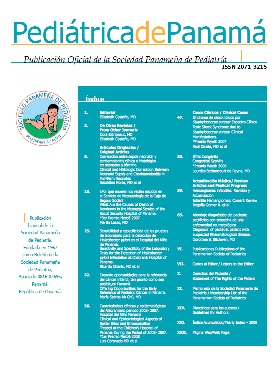About other Journals
[About other Journals]2021-06-28
Downloads
Keywords:
niños, epidemia, aislamiento, salud mental, juego, restricciónKeywords:
children, disease outbreak, isolation, mental health, play, restrictionAbstract
Investigadores de la Facultad de Educación de la Universidad de Cambridge, Inglaterra, nos presentan este estudio sobre la importancia del juego y como su ausencia ha impactado a los niños.
Considerando que el juego, forma parte importante del desarrollo de la infancia y también puede ser parte de la salud integral en los tiempos de crisis, este grupo realizó una revisión de 15 estudios relacionados con el impacto de la cuarentena, el aislamiento y otros entornos restrictivos en el juego y si el juego mitiga los efectos adversos de tales restricciones. Los datos evaluados fueron: acceso al juego, frecuencia del juego, juego como medio de expresión, juego y conectividad social, juego para promover el afrontamiento y juego para el desarrollo de habilidades. Se identificaron barreras para jugar, como espacios inseguros, escasez de juguetes, falta de interacción con otros niños y falta de tiempo al aire libre, y los informes indicaron que la disminución de las oportunidades de juego se asociaba con la inactividad y el aburrimiento entre los niños.
Con respecto a la oportunidad del juego de mitigar los impactos negativos de la restricción, se identificaron 10 estudios relevantes, cinco de estos, consideraron el juego como un medio de expresión y el juego para promover el afrontamiento, destacando las formas en que el juego puede ayudar a los niños a expresarse y soportar desafíos cuando se enfrentan a situaciones restrictivas. Las actividades creativas y artísticas ocuparon un lugar destacado en los estudios en relación a los efectos de mitigación. Se ha descrito en la literatura que las actividades creativas o expresivas utilizadas en entornos terapéuticos y de aula brindan a los niños oportunidades para comunicar relatos personales, interactuar con otros y expresar sus emociones. Mencionan que, en revisiones realizadas entre niños refugiados y solicitantes de asilo, sugieren que estas intervenciones basadas en artes creativas pueden ayudar a reducir los problemas emocionales y de relaciones interpersonales, así como el estrés postraumático y los síntomas de depresión, también mejoran el bienestar y la autoestima.
En conclusión, esta revisión nos indica que el juego ayuda a los niños a soportar el aislamiento, pero mencionan que se requiere mayor evaluación sobre como el juego puede ser una intervención para mitigar los impactos de la restricción.
Abstract
Researchers from the Faculty of Education at the University of Cambridge, England, present this study on the importance of play and how its absence has impacted children.
Considering that gambling is an important part of childhood development and can also be part of integral health in times of crisis, this group carried out a review of 15 studies related to the impact of quarantine, isolation and other restrictive environments in the game and if the game mitigates the adverse effects of such restrictions.
The data evaluated were: access to play, frequency of play, play as a means of expression, play and social connectivity, play to promote coping, and play to develop skills.
Barriers to play, such as unsafe spaces, a shortage of toys, lack of interaction with other children, and lack of time outdoors were identified, and reports indicated that decreased opportunities for play were associated with inactivity and boredom among children. kids.
Regarding the opportunity of gambling to mitigate the negative impacts of restriction, 10 relevant studies were identified, five of these considered gambling as a means of expression and gambling to promote coping, highlighting the ways in which gambling can help children express themselves and endure challenges when faced with restrictive situations.
Creative and artistic activities featured prominently in studies in relation to mitigation effects. Creative or expressive activities used in therapeutic and classroom settings have been described in the literature as providing children with opportunities to communicate personal stories, interact with others, and express their emotions.
They mention that, in reviews conducted among refugee and asylum-seeking children, they suggest that these creative arts-based interventions can help reduce emotional and interpersonal relationship problems, as well as post-traumatic stress and symptoms of depression, also improve well-being and the self-esteem.
In conclusion, this review indicates that play helps children cope with isolation, but they mention that further evaluation is required on how play can be an intervention to mitigate the impacts of restriction.
License
Copyright (c) 2021 Pediatric Journal of PanamaDerechos autoriales y de reproducibilidad. La Revista Pediátrica de Panamá es un ente académico, sin fines de lucro, que forma parte de la Sociedad Panameña de Pediatría. Sus publicaciones son de tipo ACCESO GRATUITO y PERMANENTE de su contenido para uso individual y académico, sin restricción. Los derechos autoriales de cada artículo son retenidos por sus autores. Al Publicar en la Revista, el autor otorga Licencia permanente, exclusiva, e irrevocable a la Sociedad para la edición del manuscrito, y otorga a la empresa editorial, Infomedic International Licencia de uso de distribución, indexación y comercial exclusiva, permanente e irrevocable de su contenido y para la generación de productos y servicios derivados del mismo.






